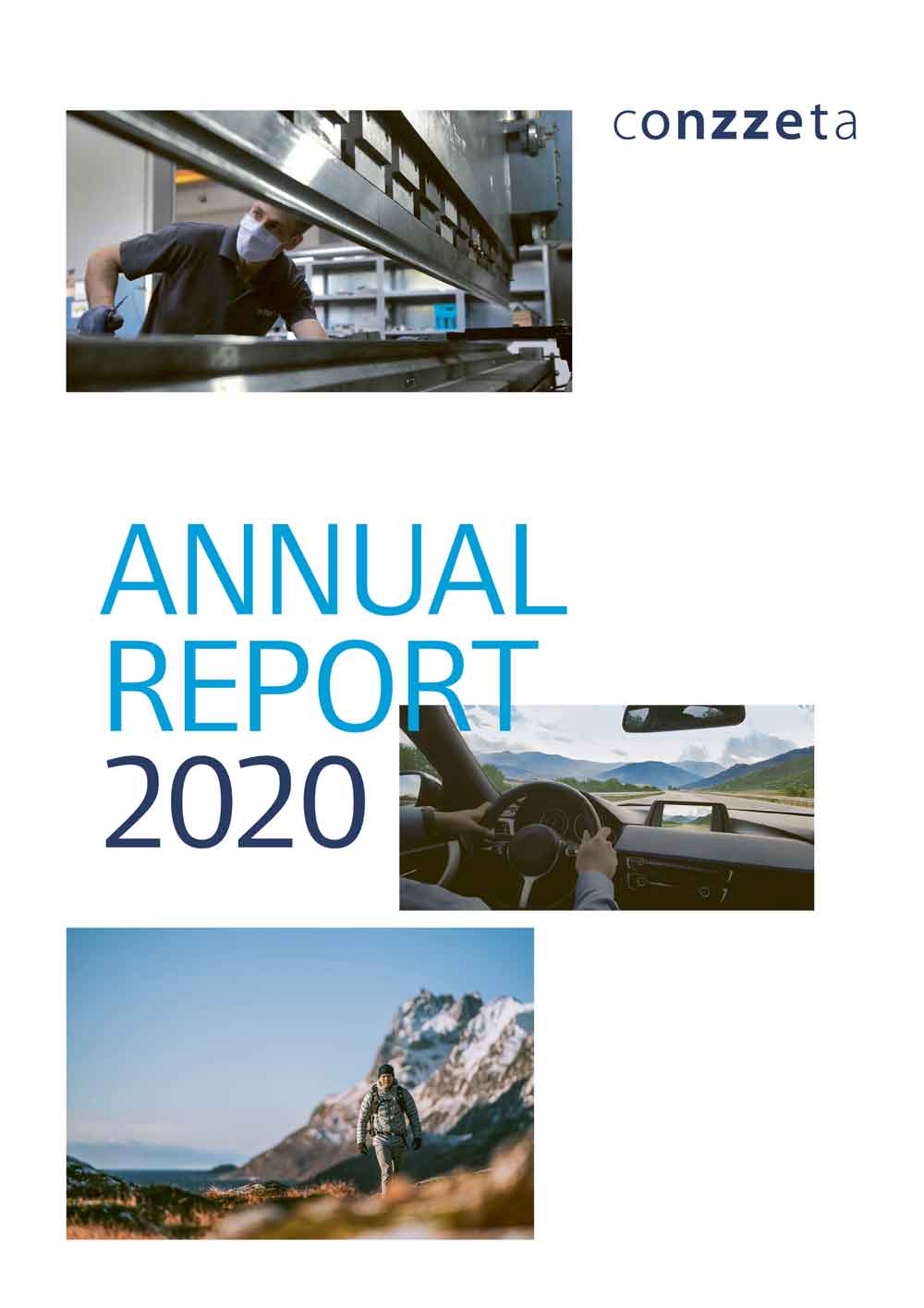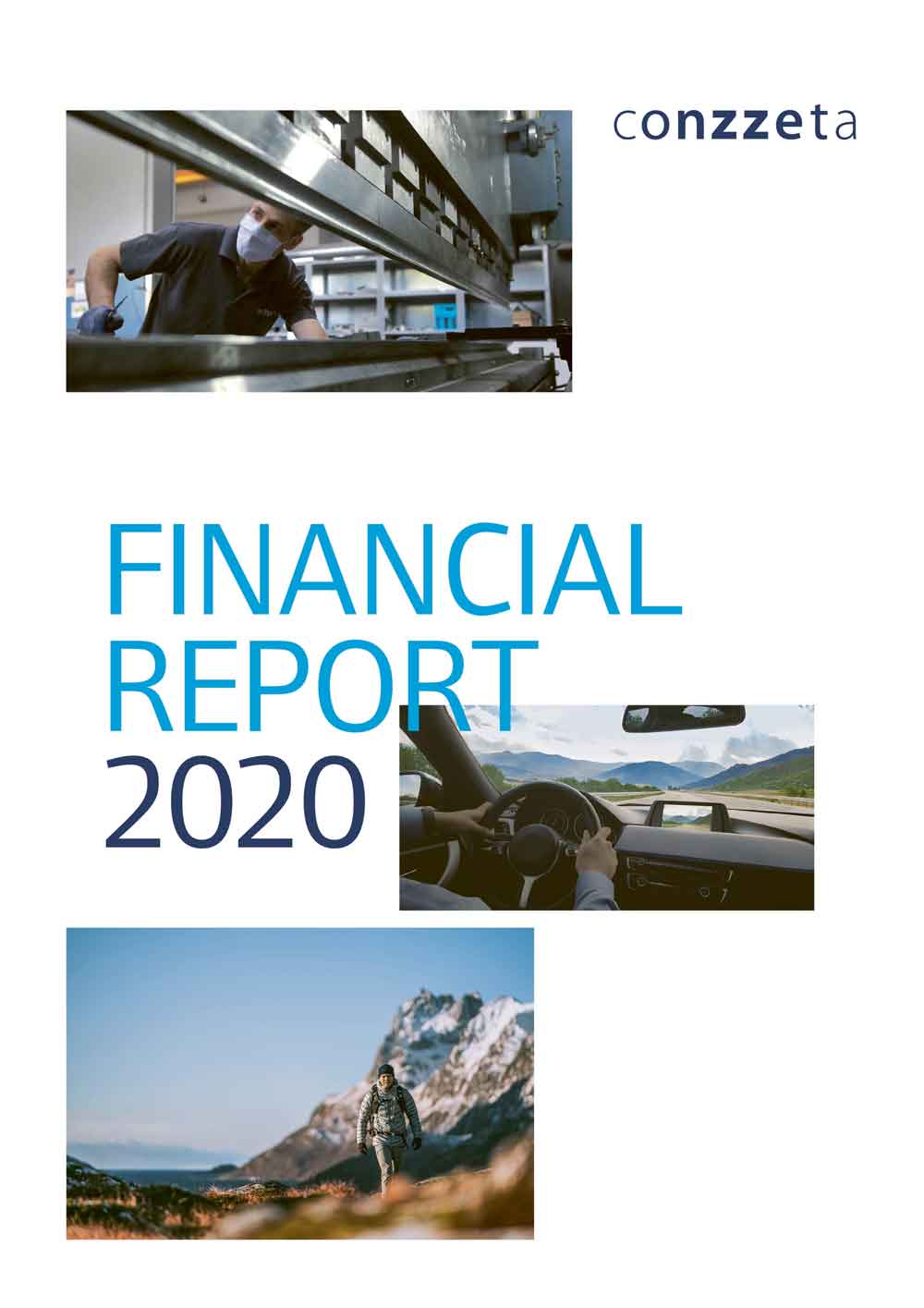Statutory Auditor’s Report to the General Meeting of Conzzeta AG, Zurich
Report on the Audit of the Consolidated Financial Statements
Opinion
We have audited the consolidated financial statements of Conzzeta AG and its subsidiaries (the Group), which comprise the consolidated balance sheet as at 31 December 2020 and the consolidated statement of income, consolidated statement of changes in equity and consolidated statement of cash flows for the year then ended, and notes to the consolidated financial statements, including a summary of significant accounting policies.
In our opinion the consolidated financial statements give a true and fair view of the consolidated financial position of the Group as at 31 December 2020, and its consolidated results of operations and its consolidated cash flows for the year then ended in accordance with Swiss GAAP FER and comply with Swiss law.
Basis for Opinion
We conducted our audit in accordance with Swiss law and Swiss Auditing Standards. Our responsibilities under those provisions and standards are further described in the Auditor’s Responsibilities for the Audit of the Consolidated Financial Statements section of our report. We are independent of the Group in accordance with the provisions of Swiss law and the requirements of the Swiss audit profession and we have fulfilled our other ethical responsibilities in accordance with these requirements.
We believe that the audit evidence we have obtained is sufficient and appropriate to provide a basis for our opinion.
Report on Key Audit Matters based on the circular 1/2015 of the Federal Audit Oversight Authority
Key audit matters are those matters that, in our professional judgment, were of most significance in our audit of the consolidated financial statements of the current period. These matters were addressed in the context of our audit of the consolidated financial statements as a whole, and in forming our opinion thereon, and we do not provide a separate opinion on these matters.
Revenue recognition
Key Audit Matter
Revenue represents the basis for assessing Conzzeta’s performance and is thus at the center of the company’s targets. Therefore, the pressure that may arise to achieve revenue targets leads to an increased risk with respect to recognizing revenue in the proper period.
With its diversified businesses, different aspects are of relevance for Conzzeta. Revenue is recognized, when goods or products have been delivered or services are rendered and when risk and reward as well as control have been transferred to the buyer, depending on the relevant terms and conditions. In the business area Bystronic, there is a higher degree of judgement when it comes to revenue recognition, as in some cases multiple components and their installation are included in the assessment.
Our response
During our audit, we analysed the process established to determine revenue recognition and assessed whether goods sold were recorded in the appropriate accounting period. We identified the key controls relevant for revenue recognition and tested them for their operating effectiveness on a sample basis.
Moreover, we performed the following audit procedures to assess the correctness of revenue recognition in the business areas described.
- Testing of the accuracy of revenue recognition as at 31 December 2020 by reconciling invoices with bills of delivery.
- Critically assessed sales margins and deviations to prior year for major product groups and compared reported results with our expectations, based on inquiries of management and challenge of the analyses presented.
- Assessing the completeness and accuracy of sales deductions by inspecting credit notes issued in 2020 and by retrospectively comparing actual sales deductions with the estimates of prior year.
- In the business area Sheet Metal Processing, we tested the transfer of risks and rewards based on the estimates for installation costs to be incurred and by comparing actual costs to those of prior year. Furthermore, we inspected handover certificates and correspondence with clients on machine acceptance and assessed the transfer of risk and rewards.
For further information regarding revenue recognition, refer to section 1.2 in the notes to the consolidated financial statements.
Valuation of inventories
Key Audit Matter
As at 31 December 2020, inventories amounted to CHF 284.5 million (CHF 304.2 million as at 31 December 2019), representing one of the most significant assets. Proper valuation of inventories is therefore of importance for the overall understanding of the consolidated financial statements.
The valuation of inventories is affected by specific risks in the following business areas:
Sheet Metal Processing
- For semifinished products, work in progress and finished goods with a high proportion of value creation, the determination of the current production costs involves judgement and depends on the progress of the order fulfillment.
- Moreover, finished goods bear the risk that production costs exceed their net realisable value (lower of cost or market).
- Further management judgement is required for spare parts with longer turnover periods.
Outdoor
- Amounts for value adjustments essentially depend on management’s assumptions regarding future fashion trends and seasonal customer behavior in the outdoor industry. We consider the estimation uncertainty relating to the amount of the of value adjustments as a significant risk.
Our response
During our audit, we analysed and assessed the process applied to the measurement of inventories. For this purpose, we identified the relevant controls relevant and tested their effectiveness on a sample basis.
Moreover, we performed the following audit procedures to assess the adequacy of the inventory valuation in the business areas as follows:
Sheet Metal Processing
- In order to assess cost of inventory we particularly verified the calculation of production costs, performed an analysis of differences between standard and actual costs, and reviewed the calculations of average cost prices and their standard costs in samples.
- The valuation at lower of cost or net realisable value was tested by using data analytics, comparing production costs with actual sales prices, net of distribution costs to be incurred, before and after the balance sheet date.
- In order to assess the inventory of spare parts considered to be difficult to sell or with long turnover periods, we particularly tested the calculation of the value adjustments and the appropriateness of the assumptions used.
Outdoor
- We evaluated the adequacy of the process to identify obsolete inventories, considering their seasonality and expectations regarding fashion trends and challenged the basic principles and assumptions used to measure inventories.
- We also retroactively tested the assumptions used and analyzed deviations from the estimates.
- We tested the mathematical accuracy of the calculation of the value adjustments as well as the completeness of the underlying data.
For further information regarding valuation of inventories refer to the following section 2.1 in the notes to the consolidated financial statements.
Responsibility of the Board of Directors for the Consolidated Financial Statements
The Board of Directors is responsible for the preparation of the consolidated financial statements that give a true and fair view in accordance with Swiss GAAP FER and the provisions of Swiss law, and for such internal control as the Board of Directors determines is necessary to enable the preparation of consolidated financial statements that are free from material misstatement, whether due to fraud or error.
In preparing the consolidated financial statements, the Board of Directors is responsible for assessing the Group’s ability to continue as a going concern, disclosing, as applicable, matters related to going concern and using the going concern basis of accounting unless the Board of Directors either intends to liquidate the Group or to cease operations, or has no realistic alternative but to do so.
Auditor’s Responsibilities for the Audit of the Consolidated Financial Statements
Our objectives are to obtain reasonable assurance about whether the consolidated financial statements as a whole are free from material misstatement, whether due to fraud or error, and to issue an auditor’s report that includes our opinion. Reasonable assurance is a high level of assurance, but is not a guarantee that an audit conducted in accordance with Swiss law and Swiss Auditing Standards will always detect a material misstatement when it exists. Misstatements can arise from fraud or error and are considered material if, individually or in the aggregate, they could reasonably be expected to influence the economic decisions of users taken on the basis of these consolidated financial statements.
As part of an audit in accordance with Swiss law and Swiss Auditing Standards, we exercise professional judgment and maintain professional skepticism throughout the audit. We also:
- Identify and assess the risks of material misstatement of the consolidated financial statements, whether due to fraud or error, design and perform audit procedures responsive to those risks, and obtain audit evidence that is sufficient and appropriate to provide a basis for our opinion. The risk of not detecting a material misstatement resulting from fraud is higher than for one resulting from error, as fraud may involve collusion, forgery, intentional omissions, misrepresentations, or the override of internal control.
- Obtain an understanding of internal control relevant to the audit in order to design audit procedures that are appropriate in the circumstances, but not for the purpose of expressing an opinion on the effectiveness of the Group’s internal control.
- Evaluate the appropriateness of accounting policies used and the reasonableness of accounting estimates and related disclosures made.
- Conclude on the appropriateness of the Board of Directors’ use of the going concern basis of accounting and, based on the audit evidence obtained, whether a material uncertainty exists related to events or conditions that may cast significant doubt on the Group’s ability to continue as a going concern. If we conclude that a material uncertainty exists, we are required to draw attention in our auditor’s report to the related disclosures in the consolidated financial statements or, if such disclosures are inadequate, to modify our opinion. Our conclusions are based on the audit evidence obtained up to the date of our auditor’s report. However, future events or conditions may cause the Group to cease to continue as a going concern.
- Evaluate the overall presentation, structure and content of the consolidated financial statements, including the disclosures, and whether the consolidated financial statements represent the underlying transactions and events in a manner that achieves fair presentation.
- Obtain sufficient appropriate audit evidence regarding the financial information of the entities or business activities within the Group to express an opinion on the consolidated financial statements. We are responsible for the direction, supervision and performance of the Group audit. We remain solely responsible for our audit opinion.
We communicate with the Board of Directors or its relevant committee regarding, among other matters, the planned scope and timing of the audit and significant audit findings, including any significant deficiencies in internal control that we identify during our audit.
We also provide the Board of Directors or its relevant committee with a statement that we have complied with relevant ethical requirements regarding independence, and to communicate with them all relationships and other matters that may reasonably be thought to bear on our independence, and where applicable, related safeguards.
From the matters communicated with the Board of Directors or its relevant committee, we determine those matters that were of most significance in the audit of the consolidated financial statements of the current period and are therefore the key audit matters. We describe these matters in our auditor’s report, unless law or regulation precludes public disclosure about the matter or when, in extremely rare circumstances, we determine that a matter should not be communicated in our report because the adverse consequences of doing so would reasonably be expected to outweigh the public interest benefits of such communication.
Report on Other Legal and Regulatory Requirements
In accordance with article 728a para. 1 item 3 CO and the Swiss Auditing Standard 890, we confirm that an internal control system exists, which has been designed for the preparation of consolidated financial statements according to the instructions of the Board of Directors.
We recommend that the consolidated financial statements submitted to you be approved.
KPMG AG

François Rouiller
Licensed Audit Expert
Auditor in Charge

Reto Kaufmann
Licensed Audit Expert
Zurich, 12 March 2021

